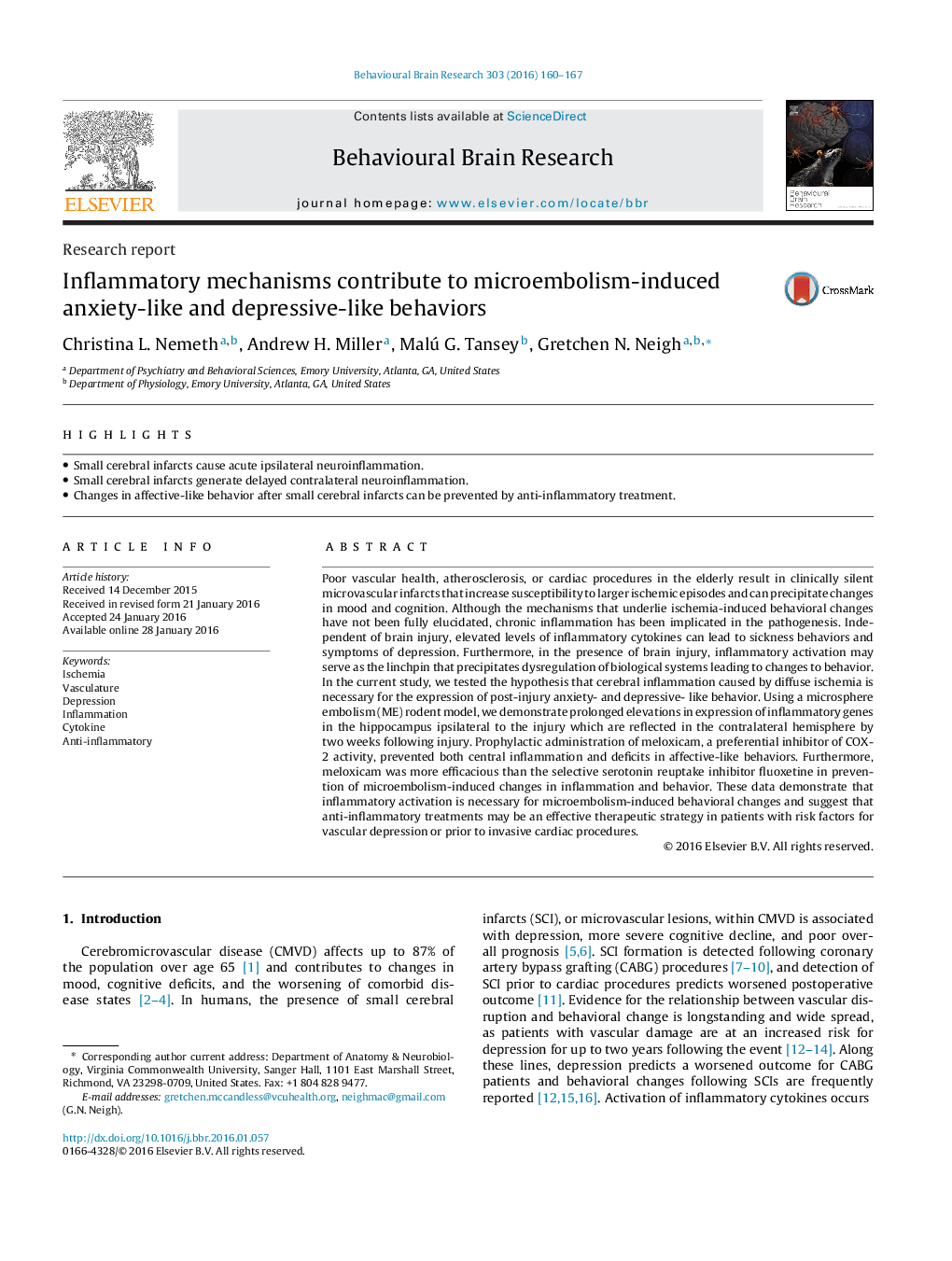| کد مقاله | کد نشریه | سال انتشار | مقاله انگلیسی | نسخه تمام متن |
|---|---|---|---|---|
| 4312237 | 1612930 | 2016 | 8 صفحه PDF | دانلود رایگان |
• Small cerebral infarcts cause acute ipsilateral neuroinflammation.
• Small cerebral infarcts generate delayed contralateral neuroinflammation.
• Changes in affective-like behavior after small cerebral infarcts can be prevented by anti-inflammatory treatment.
Poor vascular health, atherosclerosis, or cardiac procedures in the elderly result in clinically silent microvascular infarcts that increase susceptibility to larger ischemic episodes and can precipitate changes in mood and cognition. Although the mechanisms that underlie ischemia-induced behavioral changes have not been fully elucidated, chronic inflammation has been implicated in the pathogenesis. Independent of brain injury, elevated levels of inflammatory cytokines can lead to sickness behaviors and symptoms of depression. Furthermore, in the presence of brain injury, inflammatory activation may serve as the linchpin that precipitates dysregulation of biological systems leading to changes to behavior. In the current study, we tested the hypothesis that cerebral inflammation caused by diffuse ischemia is necessary for the expression of post-injury anxiety- and depressive- like behavior. Using a microsphere embolism (ME) rodent model, we demonstrate prolonged elevations in expression of inflammatory genes in the hippocampus ipsilateral to the injury which are reflected in the contralateral hemisphere by two weeks following injury. Prophylactic administration of meloxicam, a preferential inhibitor of COX-2 activity, prevented both central inflammation and deficits in affective-like behaviors. Furthermore, meloxicam was more efficacious than the selective serotonin reuptake inhibitor fluoxetine in prevention of microembolism-induced changes in inflammation and behavior. These data demonstrate that inflammatory activation is necessary for microembolism-induced behavioral changes and suggest that anti-inflammatory treatments may be an effective therapeutic strategy in patients with risk factors for vascular depression or prior to invasive cardiac procedures.
Journal: Behavioural Brain Research - Volume 303, 15 April 2016, Pages 160–167
